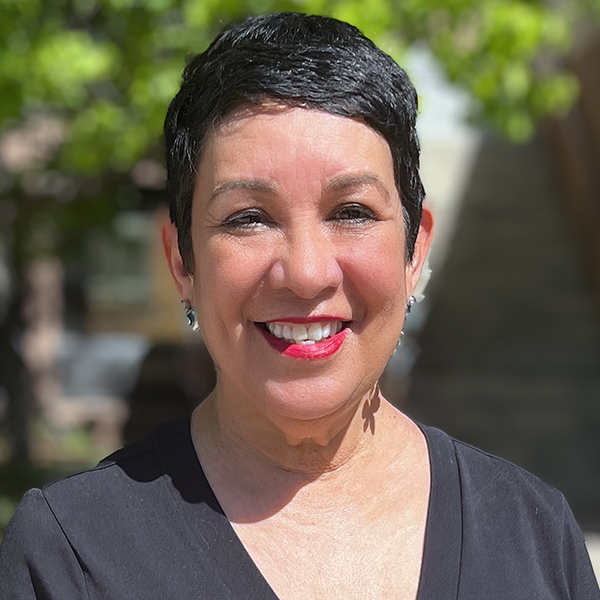Law Professor Aliza Organick named Director of Law and Indigenous Peoples Program
June 17, 2024

Professor Aliza Organick has been named director of the Law and Indigenous Peoples Program at the School of Law.
“Professor Organick brings a wealth of knowledge, experience, leadership, and grace to the position. I have the utmost confidence that Professor Organick will do an amazing job leading this important program and ensuring its future success,” School of Law Dean Camille Carey said. “The School of Law is committed to the continued strength and evolution of the Law and Indigenous Peoples Program. Professor Organick’s dedication to leading the way during this period of transition is truly moving.”
Professor Organick will succeed Professor John P. Lavelle who retired at the end of the Spring 2024 semester.
“I’m incredibly honored and excited to be in this role, and I look forward to standing on the shoulders of the people who came before me — those who had this original vision and those who have cultivated this extraordinary program,” Professor Organick said. “This is an amazing program and as an enrolled member of the Navajo Nation, I always feel that having an opportunity to represent Native people in any capacity is a gift.”
Organick looks forward to bringing her experience and enthusiasm to the role and to helping the program continue to support its students.
The Law and Indigenous Peoples Program supports students interested in studying Indian Law and helps administer the Certificate in Indian Law, the Southwest Indian Law Clinic, Tribal Law Journal and the Native American Law Students Association. Organick is a graduate of the University of New Mexico School of Law (’96). From 2004 to 2012, she taught at Washburn University School of Law. There, drawing from UNM Law Professor Christine Zuni Cruz’s (‘83) vision for a tribal law clinic, Professor Organick founded Washburn’s Tribal and State Court Practice clinic section with a focus on representing Native clients in Kansas tribal courts. Organick returned to UNM in 2012 to teach in the School of Law Clinical Law Program, including in the Southwest Indian Law Clinic, a clinic section with a focus on representing Native clients in State and Tribal Courts. She plans to continue teaching in the clinic after taking on her new role.
As the only law school in New Mexico, home to 19 Pueblos, three Apache tribes, and the Navajo Nation, the School of Law is uniquely situated to lead innovation in Indian Law education and the School of Law was among the first to offer clinical education and a certificate in Indian law. Both Native and non-Native students are invited to study or get involved with the school’s offerings.
“Our alumni represent their tribes as prosecutors and defense attorneys. We have others working in state and federal government. Even if they don’t want to practice law, they have insight they can use to be leaders in their communities,” Professor Organick said. “Our role has been extraordinary and we’ve done an amazing job cultivating and supporting our students as they go on to practice or be advocates for their communities.”
Throughout Organick’s career, she has found inspiration and insight from the faculty who helped establish UNM as one of the leading law schools for indigenous students and those interested in Indian law. She cited Professors Emerita Christine Zuni-Cruz and Gloria Valencia-Weber as two of her mentors and visionary predecessors.
“This program is really an innovator. The program took on the vision and insight of deans and faculty who really understood that the School of Law was in a unique position to create something new here. With this in mind, the School not only developed programming around Federal Indian law as a body of jurisprudence, but also developed a means of thinking about the ways that Native people themselves in the state could participate in that process rather than just be victims of it.”
